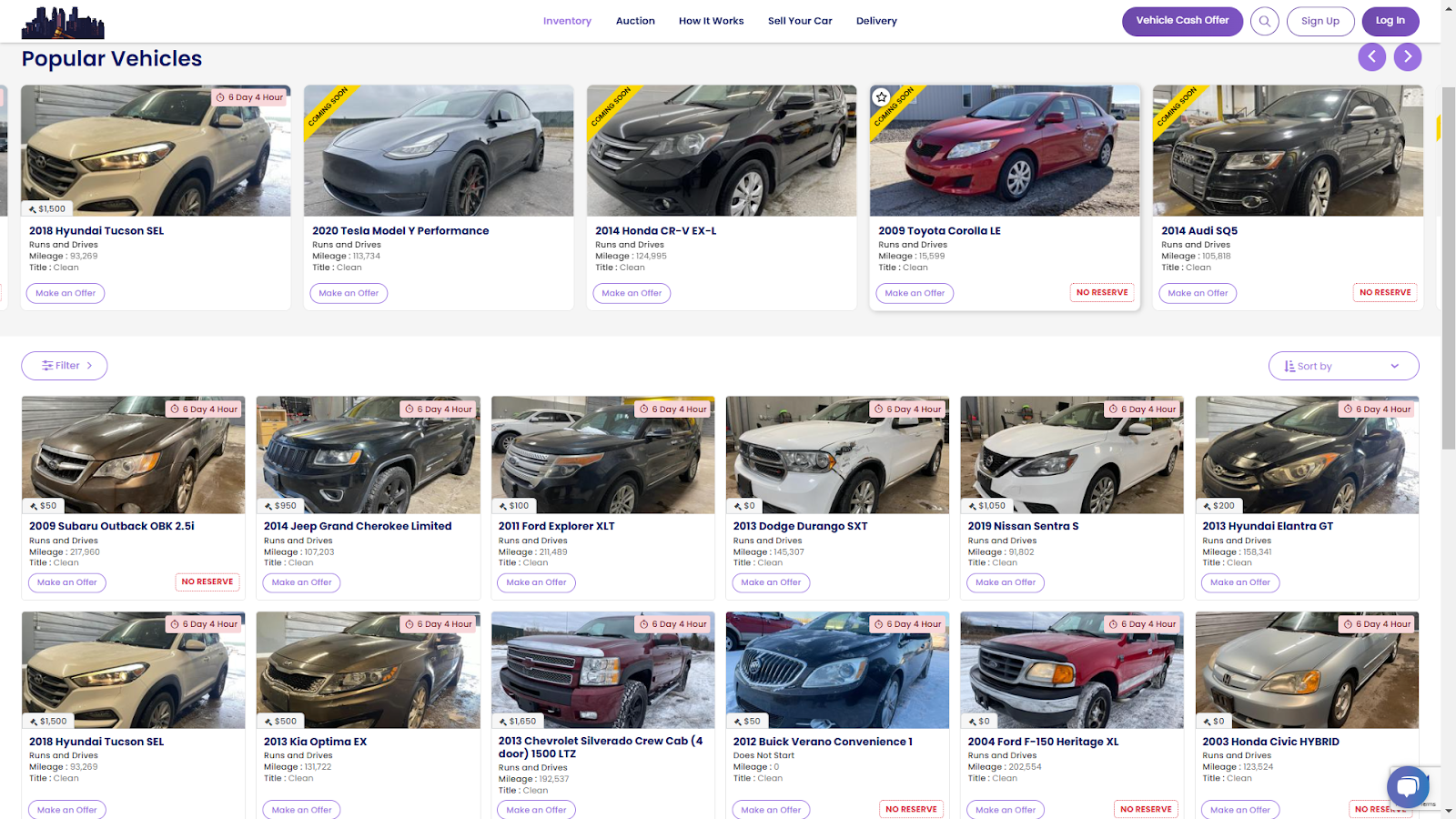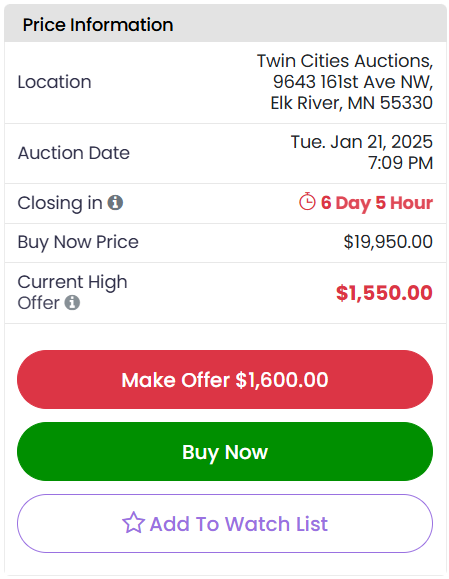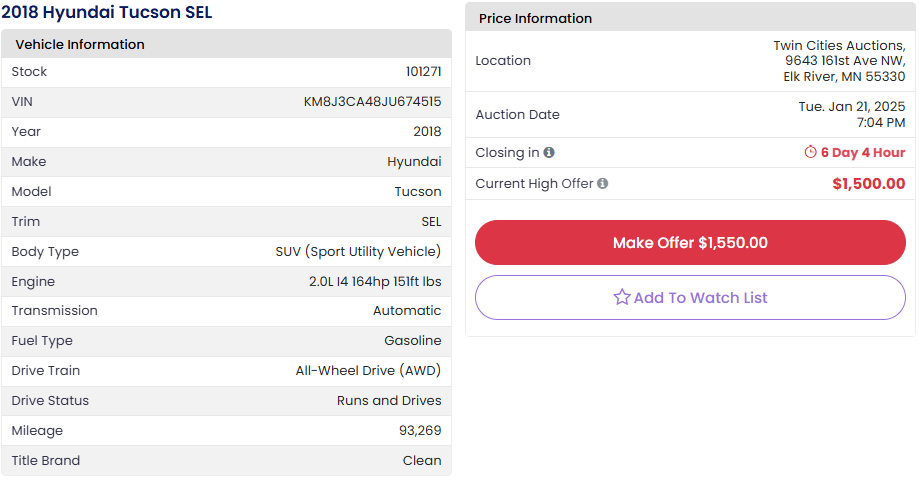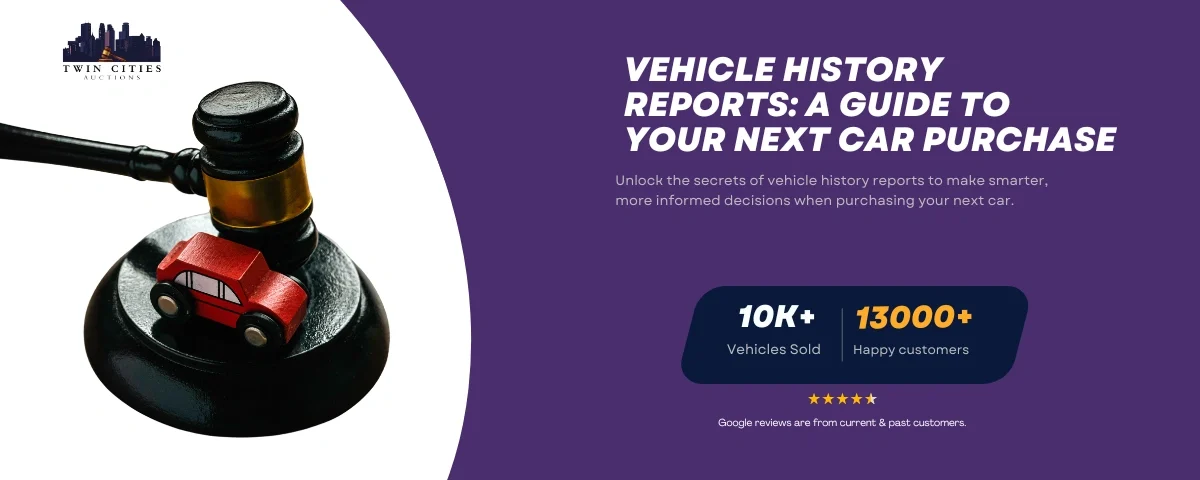Are you about to make a significant investment in a used car? Did you know that one in five vehicles sold in the United States has a hidden problem that can cost you thousands of dollars down the line?
A staggering 20% of vehicles sold have some form of title issue, accident history, or other hidden defects, according to statistics (NMVTIS).
This is where vehicle history reports come into play, providing you with the crucial information needed to make an informed decision.
Key Takeaways:
- Detailed documents that include information about a vehicle’s ownership history, accident history, service records, and more.
- Understanding the Vehicle Identification Number (VIN) is key to interpreting vehicle history reports.
- Online car auctions provide convenience, access to a wider selection of vehicles, and the potential for better deals compared to traditional auctions or dealerships.
- When interpreting a vehicle history report, look for consistency with the seller’s information, check for red flags like multiple owners or frequent repairs, and consider how past issues might affect the car’s current condition and future reliability.
Understanding Vehicle History Reports
Vehicle history reports are comprehensive documents that provide detailed information about a vehicle’s past. These reports are essential for anyone considering purchasing a used car, as they help uncover any hidden issues that could lead to costly repairs or legal problems.
Components of a Vehicle History Report:
- Ownership History: Information about previous owners and their history with the vehicle.
- Accident History: Details about any accidents involving the vehicle, including the extent of damage.
- Service Records: A history of maintenance and repairs performed on the vehicle.
- Odometer Readings: A record of mileage over time to detect potential odometer fraud.
- Title Status: Information about any title issues, including salvage titles or rebuilt titles.
- Recalls and Lemon History: Information about any recalls or lemon law buybacks.
Decoding the VIN
The Vehicle Identification Number (VIN) is a unique 17-digit code that acts as the vehicle’s DNA, containing vital information about its make, model, year, and more. Understanding the VIN is crucial for interpreting vehicle history reports.
How to Decode the VIN:
- VIN Structure: The VIN is divided into three sections: the World Manufacturer Identifier (WMI), the Vehicle Descriptor Section (VDS), and the Vehicle Identifier Section (VIS).
- Using Online Tools: Websites like the National Highway Transportation Safety Administration’s VIN decoder provide a comprehensive look at how a car was originally equipped.
From Research to Reality: Seal Your Auction Win
Once you’ve learned how to interpret vehicle history reports and decode VINs, you’re ready to start shopping for your next car with greater confidence.
But where do you begin? Today’s digital landscape offers convenient avenues for used car buyers, and online auctions are rapidly becoming a preferred way to find a wide variety of vehicles at competitive prices.
Twin Cities Auctions: A Reliable Online Auction Platform
Twin Cities Auctions is a reputable online auction platform that offers a wide range of vehicles, including used, classic, and salvage vehicles. Their transparent bidding process and comprehensive vehicle inspections make it easier for buyers to find their next car.
Benefits of Twin Cities Auctions:
- Wide Selection: A diverse inventory of vehicles, including domestic and imported models, SUVs, and trucks

- Flexible Bidding: Online bidding options allow buyers to participate from anywhere, at any time

- Transparent Process: Comprehensive vehicle inspections and clear bidding processes ensure transparency.


Key Features of Vehicle History Reports
| Feature | Description | Importance |
| Ownership History | Information about previous owners and their history with the vehicle | Helps assess the vehicle’s reliability and potential for hidden issues |
| Accident History | Details about any accidents involving the vehicle, including the extent of damage | Essential for understanding potential repair costs and safety concerns |
| Service Records | A history of maintenance and repairs performed on the vehicle | Indicates how well the vehicle has been maintained and potential for future issues |
| Odometer Readings | A record of mileage over time to detect potential odometer fraud | Prevents buyers from purchasing a vehicle with tampered mileage |
| Title Status | Information about any title issues, including salvage titles or rebuilt titles | Critical for understanding the vehicle’s legal status and potential for future problems |
| Recalls and Lemon History | Information about any recalls or lemon law buybacks | Helps buyers avoid vehicles with known defects or safety issues |
Conclusion
Vehicle history reports are essential tools for used car buyers, providing crucial insights into a vehicle’s past, including ownership history, accident records, and maintenance. These comprehensive documents empower buyers to make informed decisions, avoid hidden issues, and negotiate effectively.
While not infallible, they significantly reduce risks associated with used car purchases by offering transparency and valuable data. Understanding how to interpret these reports, including decoding the Vehicle Identification Number (VIN), is key to maximizing their benefits.
Incorporating vehicle history reports into the evaluation process can help buyers approach used car purchases with greater confidence, ultimately leading to a more satisfying and secure investment in their next vehicle.
Find Your Next Ride Online at Twin Cities Auctions—No Dealer License Required
Searching for your next vehicle? Twin Cities Auctions offers an online, transparent car auction experience that’s accessible to everyone, no dealer license needed. Browse and bid on a diverse selection of quality vehicles from the comfort of your home.
Whether you’re a first-time buyer or an experienced trader, our clear, honest bidding process ensures you can make informed decisions in a supportive environment. Join our next online auction and discover how effortless and enjoyable finding your next car can be with Twin Cities Auctions!
FAQs
What is a vehicle history report?
A vehicle history report is a detailed document that provides information about a vehicle’s ownership history, accident history, service records, and more.
Why is decoding the VIN important?
Decoding the VIN is crucial for interpreting vehicle history reports, as it contains vital information about the vehicle’s make, model, year, and more.
How do I obtain a vehicle history report?
You can obtain a vehicle history report from various online platforms such as Carfax, AutoCheck, and the National Motor Vehicle Title Information System (NMVTIS).
What information does a vehicle history report include?
A vehicle history report includes information about the vehicle’s ownership history, accident history, service records, odometer readings, title status, and any recalls or lemon law buybacks.
How can I use a vehicle history report to negotiate a better price?
By having all the necessary information about the vehicle’s history, you can use it to negotiate a fair deal. For example, if the report shows that the vehicle has been in an accident, you can use this information to lower the price.
Can I trust the information in a vehicle history report?
Yes, reputable vehicle history report providers like Carfax and AutoCheck use reliable sources such as government records, insurance companies, and repair shops to gather information.
How often should I check a vehicle history report?
It’s recommended to check a vehicle history report before making a purchase and also periodically if you own the vehicle to stay updated on any new information.
What if I find discrepancies in the vehicle history report?
If you find discrepancies in the vehicle history report, it’s important to investigate further. Contact the seller or the report provider to clarify any inconsistencies.
Can I get a vehicle history report for free?
While some basic information may be available for free, comprehensive vehicle history reports typically require a fee. However, many online platforms offer free trials or limited free reports.
Source Links:
https://www.auto4export.com/blog/understanding-vehicle-history-reports-and-how-to-interpret-them
https://www.caranddriver.com/auto-loans/a43149830/what-is-a-vehicle-history-report/
https://blog.twincitiesautoauctions.com/online-car-auctions/


